Neurobiology of Depression Road to Novel Therapeutics

DESCRIPTION
Neurobiology of Depression: Road to Novel Therapeutics synthesizes the basic neurobiology of major depressive disorder with discussions on the most recent advances in research, including the interacting pathways implicated in the pathophysiology of MDD, omics technologies, genetic approaches, and the development of novel optogenetic approaches that are changing research perspectives and revolutionizing research into depression. These basic foundational understandings on the neurobiology underlying the disorder, along with a comprehensive summary of the most recent advances in research are combined in this book to aid advanced students and researchers in their understanding of MDD.
Depression is one of the most common mental-health disorders caused by a variety of genetic, biological, environmental and psychological factors. Major depressive disorder (MDD) is typically treated with first-line antidepressant agents that primarily target monoamine neurotransmission. However, only approximately one-third of patients with MDD achieve remission following a trial with such an antidepressant. Furthermore, MDD is a heterogeneous phenotype, and new frameworks, such as the NIMH Research Domain Criteria (RDoC) may provide a more accurate, biologically based comprehension of the symptomatic heterogeneity of this devastating illness.
- Aids readers in understanding major depressive disorder in the context of NIMH Research Domain Criteria (RDoC) recommendations
- Covers a range of existing and potential pharmacologic and non-pharmacologic treatment options, from lifestyle adjustments, to antidepressants and novel therapeutics
- Synthesizes discussions on the cellular and molecular mechanisms underlying symptoms with the clinical aspects of depression
Table of Contents
- The Classification of Depression: Embracing Phenotypic Heterogeneity in the Era of the RDoC
Elizabeth D. Ballard, Ioline D. Henter and Carlos A. Zarate, Jr.
2. The Role of Environmental and Psychosocial Factors in Depression
Gordon Parker
3. Gene-Environment Interactions and Epigenetic Mechanisms in Depression
Magdalene C. Jawahar, Catherine G. Toben and Bernhard T. Baune
4. Pathophysiology of Cognitive Impairment in Depression
Christopher R. Bowie, Melissa Milanovic and Tanya Tran
5. Anhedonia in Depression: Mechanisms, Assessment, and Therapeutics
Theodore P. Beauchaine, Daniel N. Klein, Erin Knapton and Aimee Zisner
6. The Neurotrophic Hypothesis of Depression Revisited: New Insights and Therapeutic Implications
Minal Jaggar, Sashaina E. Fanibunda, Shreya Ghosh, Ronald S. Duman and Vidita A. Vaidya
8. Neuro-Immune Interactions in Depression: Mechanisms and Translational Implications
Helena M. Abelaira, Ritele H. Silva, Anelise S. Carlessi, João Quevedo and Gislaine Z. Réus
9. The Hypothalamic-Pituitary-Adrenal Axis in Depression: Molecular Regulation, Pathophysiological Role, and Translational Implications
Theo Rein, Oliver Ambrée, Gabriel R. Fries, Virginie Rappeneau, Ulrike Schmidt and Chadi Touma
10. Intracellular Signaling Pathways Implicated in the Pathophysiology of Depression
Gislaine Z. Réus, Jaqueline S. Generoso, Ana Lúcia S. Rodrigues and João Quevedo
11. The Long-Lasting Neurobiological Scars of Early-Life Stress: Implications for the Neurobiology of Depression
Mousa Botros, Gabrielle Hodgins and Charles B. Nemeroff
12. Molecular, Cellular, and Circuit Basis of Depression Susceptibility and Resilience
Ming-Hu Han, Scott J. Russo and Eric J. Nestler
13. More Than a Gut Feeling: Emerging Roles of the Microbiome in the Pathophysiology and Treatment of Depression
Jane A. Foster
14. Optogenetics: Illuminating the Neural Circuits of Depression
Muir J. and Bagot R. C.
15. Mitochondrial Dysfunction and Oxidative Stress: Relevance to the Pathophysiology and Treatment of Depression
Adrian L. Lopresti
16. Obesity and Depression: Shared Pathophysiology and Translational Implications
Lison Huet, Ines Delgado, Bruno Aouizerate, Nathalie Castanon and Lucile Capuron
17. Depression and Cardiovascular Risk: Epidemiology, Mechanisms, and Implications
Jessica Hatch and Benjamin I. Goldstein
18. Poststroke Depression: Pathophysiology and Treatment Strategies
Yun-Ju Lai and Louise D. McCullough
19. Is Depression Associated With Accelerated Aging? Mechanisms and Implications
Daniel Lindqvist, Naomi M. Simon and Owen M. Wolkowitz
20. Relationship Between Complicated Grief and Depression: Relevance, Etiological Mechanisms, and Implications
Nicole J. LeBlanc, Naomi M. Simon, Charles F. Reynolds, III, M. Katherine Shear, Natalia Skritskaya and Sidney Zisook
21. A Neural Circuit-Based Model for Depression Anchored in a Synthesis
of Insights From Functional Neuroimaging
Andrea N. Goldstein-Piekarski and Leanne M. Williams
22. Could Depression be Preventable? Evidence and Perspectives
Scott B. Patten
23. Treating Depression in the Era of Precision Medicine: Challenges and Perspectives
Michael Musker and Ma-Li Wong
24. Neurobiological Aspects of Functional Recovery in Major Depressive Disorder
Trisha Chakrabarty, David Sarfati and Raymond W. Lam
25. Diet and Depression: From Epidemiology to Novel Therapeutics
Wolfgang Marx, Erin Hoare and Felice Jacka
26. Physical Activity and Exercise as a Treatment of Depression: Evidence and Neurobiological Mechanism
Brendon Stubbs and Felipe Schuch
27. Antidepressants and Suicidality—
Controversies and Possible Mechanisms
Josef Witt-Doerring and Sanjay Mathew
28. Altered GABAergic Function, Cortical Microcircuitry, and Information Processing in Depression
Dwight F. Newton, Corey Fee, Yuliya S. Nikolova and Etienne Sibille
29. Biomarker-Based Treatment Selection: A Precision Medicine Approach for Depression
Jennifer L. Furman and Madhukar H. Trivedi
30. Implications of Pharmacogenomics in Depression Pathophysiology and Treatment
Forbes M. P., Jaksa P., Eyre H. A. and Bousman C.
31. Novel Neuromodulatory Approaches for Depression: Neurobiological Mechanisms
Lucia Bulubas, Eva Mezger, Daniel Keeser, Frank Padberg and Andre R. Brunoni
32. Electroconvulsive Therapy for Depression: Neurobiological Mechanisms
Peter Mulders, Stevie Jaarsveld, Indira Tendolkar and Philip van Eijndhoven
33. Deep Brain Stimulation: Mechanisms Underpinning Antidepressant Effects
Sonia Torres-Sanchez, Laura Perez-Caballero and Esther Berrocoso
34. Novel Therapeutic Targets for Major Depressive Disorder
Max A. Lazar and Roger S. McIntyre
35. The Search for Rapid Acting Antidepressants: Research Synthesis and Perspectives
Gerard Sanacora, Brandon M. Kitay and Samuel T. Wilkinson
36. Pediatric Depression
Frances Rice and Naomi Warne
37. Depression in Women
Molly M. Hyer and Gretchen N. Neigh
38. Advances in the Neurobiology of Late-Life Depression
Breno Satler Diniz and Antonio Lucio Teixeira
Book categories
-Special order
-Publishers
-Promo
-Callisto Publications
-New books
-- 463,05 leiMRP: 514,50 lei
- 2310,00 leiMRP: 2520,00 lei
- 115,50 lei
Promotions
-- 463,05 leiMRP: 514,50 lei
- 2310,00 leiMRP: 2520,00 lei
- 661,50 leiMRP: 735,00 lei


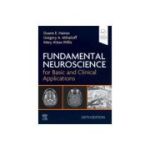

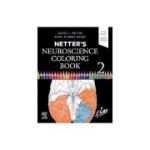
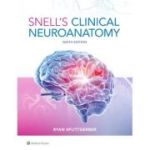
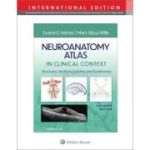
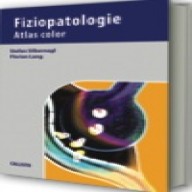




OUR VISITORS OPINIONS